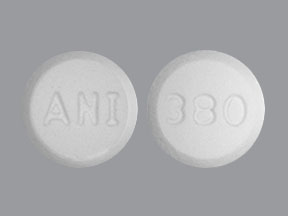Flecainide Interactions
There are 372 drugs known to interact with flecainide, along with 5 disease interactions, and 1 alcohol/food interaction. Of the total drug interactions, 73 are major, 282 are moderate, and 17 are minor.
- View all 372 medications that may interact with flecainide
- View flecainide alcohol/food interactions (1)
- View flecainide disease interactions (5)
Most frequently checked interactions
View interaction reports for flecainide and the medicines listed below.
- Aspir 81 (aspirin)
- Aspirin Low Strength (aspirin)
- Benadryl (diphenhydramine)
- CoQ10 (ubiquinone)
- Crestor (rosuvastatin)
- Cymbalta (duloxetine)
- Diltiazem Hydrochloride CD (diltiazem)
- Eliquis (apixaban)
- Fish Oil (omega-3 polyunsaturated fatty acids)
- Flonase (fluticasone nasal)
- Lasix (furosemide)
- Lexapro (escitalopram)
- Lipitor (atorvastatin)
- Metoprolol Succinate ER (metoprolol)
- Metoprolol Tartrate (metoprolol)
- MiraLAX (polyethylene glycol 3350)
- Nexium (esomeprazole)
- Pradaxa (dabigatran)
- Probiotic Formula (bifidobacterium infantis / lactobacillus acidophilus)
- Protonix (pantoprazole)
- Singulair (montelukast)
- Synthroid (levothyroxine)
- Tylenol (acetaminophen)
- Vitamin B12 (cyanocobalamin)
- Vitamin C (ascorbic acid)
- Vitamin D2 (ergocalciferol)
- Vitamin D3 (cholecalciferol)
- Xanax (alprazolam)
- Xarelto (rivaroxaban)
- Zyrtec (cetirizine)
Flecainide alcohol/food interactions
There is 1 alcohol/food interaction with flecainide.
Flecainide disease interactions
There are 5 disease interactions with flecainide which include:
- cardiovascular dysfunction
- sinus-AV node dysfunction
- electrolyte imbalance
- hepatic dysfunction
- renal dysfunction
More about flecainide
- flecainide consumer information
- Compare alternatives
- Pricing & coupons
- Reviews (179)
- Drug images
- Side effects
- Dosage information
- During pregnancy
- Support group
- Drug class: group I antiarrhythmics
- Breastfeeding
- En español
Related treatment guides
Drug Interaction Classification
| Highly clinically significant. Avoid combinations; the risk of the interaction outweighs the benefit. | |
| Moderately clinically significant. Usually avoid combinations; use it only under special circumstances. | |
| Minimally clinically significant. Minimize risk; assess risk and consider an alternative drug, take steps to circumvent the interaction risk and/or institute a monitoring plan. | |
| No interaction information available. |
See also:
Further information
Always consult your healthcare provider to ensure the information displayed on this page applies to your personal circumstances.


